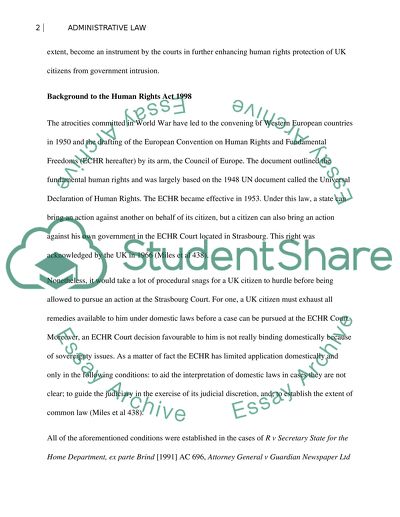Cite this document
(“Human Rights Act 1998 Essay Example | Topics and Well Written Essays - 2000 words”, n.d.)
Retrieved from https://studentshare.org/law/1420292-administrative-law
Retrieved from https://studentshare.org/law/1420292-administrative-law
(Human Rights Act 1998 Essay Example | Topics and Well Written Essays - 2000 Words)
https://studentshare.org/law/1420292-administrative-law.
https://studentshare.org/law/1420292-administrative-law.
“Human Rights Act 1998 Essay Example | Topics and Well Written Essays - 2000 Words”, n.d. https://studentshare.org/law/1420292-administrative-law.


